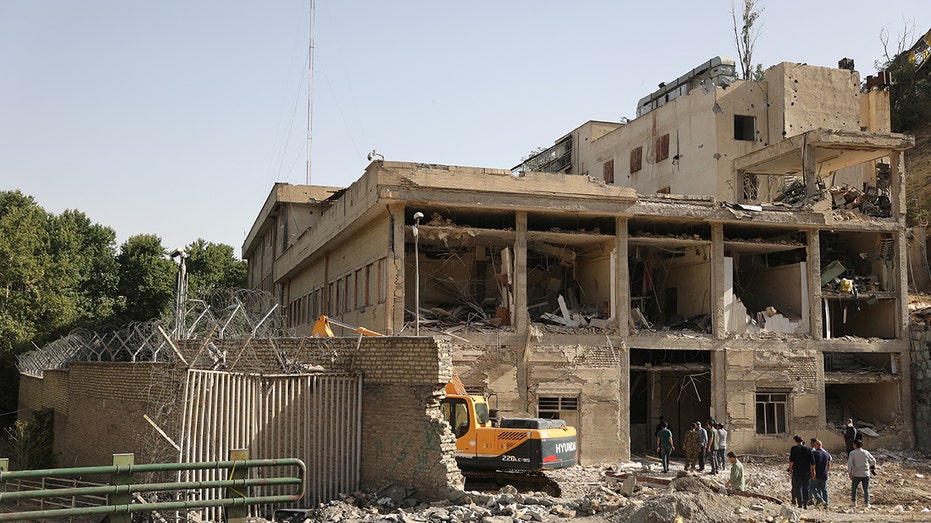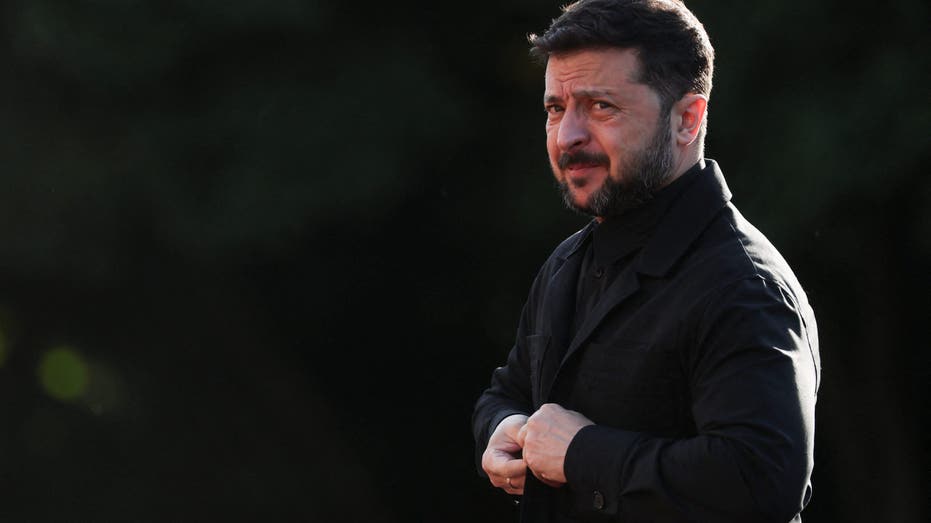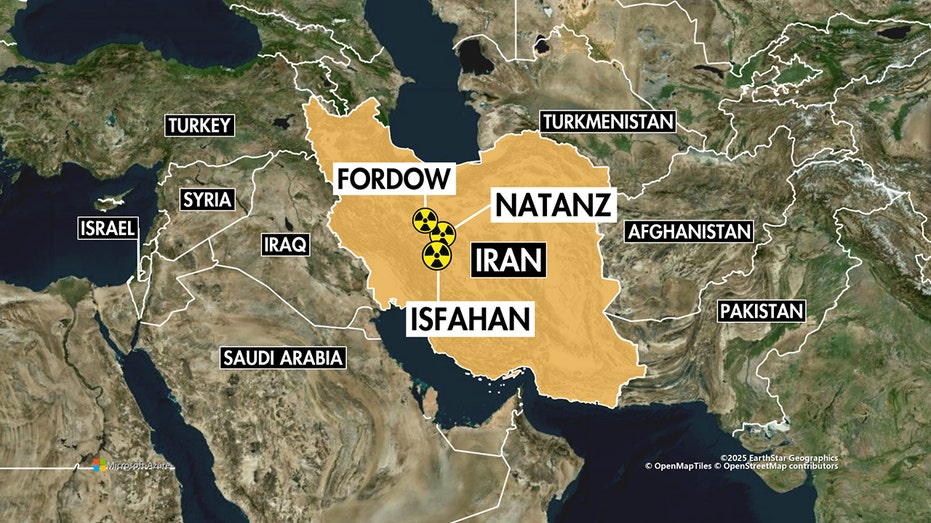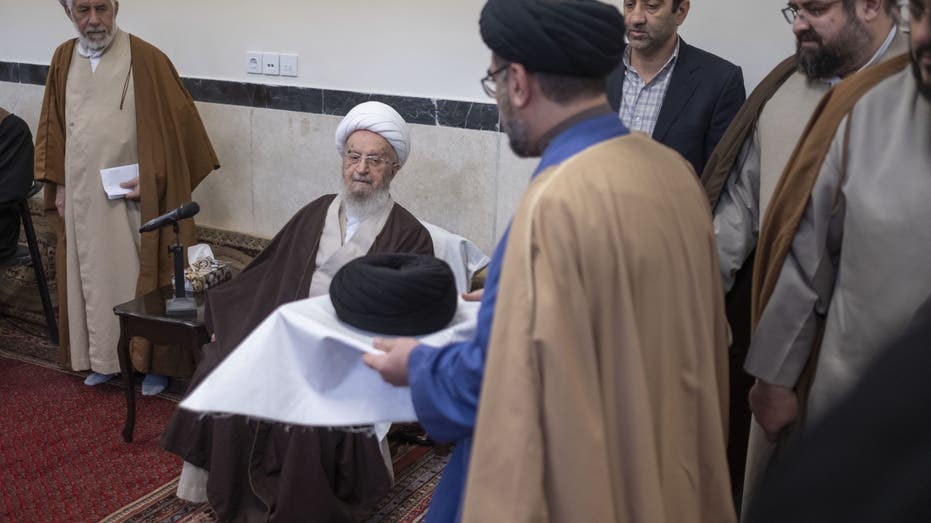📰 Iran acknowledges death toll from Israel’s strike on notorious Evin prison

The article reports that Iran confirmed an Israeli strike on Evin prison in Tehran resulted in the deaths of at least 71 people, including staff, soldiers, prisoners, and visitors. The attack also killed top prosecutor Ali Ghanaatkar, known for prosecuting dissidents, sparking criticism from human rights groups. The strike was part of a series of Israeli attacks targeting regime facilities in Tehran, including the prison known for holding political prisoners and dissidents. Despite President Trump claiming Iran’s nuclear capabilities were “obliterated,” the head of the IAEA stated that Iran still has the capacity to restart its nuclear program if desired. The article highlights ongoing concerns about Iran’s nuclear ambitions despite the reported damage to its nuclear facilities.
📰 Ukraine moves toward withdrawing from treaty banning anti-personnel mines

Ukrainian President Volodymyr Zelenskyy signed a decree to withdraw Ukraine from the 1997 Ottawa Convention banning anti-personnel landmines, citing Russia’s cynical use of such mines. Zelenskyy accused Russia of using anti-personnel mines in a destructive manner, especially during the conflict with Ukraine. The withdrawal announcement is not final until Ukraine’s parliament votes on the issue. Ukraine has faced challenges due to Russia’s use of landmines, with recent attacks involving a significant number of aerial weapons, including drones and missiles. The attack was described as the most massive airstrike since Russia’s invasion in February 2022, causing casualties and damage in various regions of Ukraine.
📰 Iran’s nuclear capabilities crushed, but regime’s desire for the bomb may persist

President Donald Trump and U.S. Defense Secretary Pete Hegseth declared that recent U.S. and Israeli strikes severely damaged Iran’s nuclear facilities, including Natanz, Fordow, and Esfahan. Despite the success of the strikes, concerns remain about potential covert elements of Iran’s nuclear program and the possibility of uranium stockpiles resurfacing. The International Atomic Energy Agency confirmed significant destruction at key Iranian nuclear sites, but experts warn that Iran may still have the capability to rebuild its program over time. The Institute for Science and International Security reported that the strikes effectively destroyed Iran’s centrifuge enrichment program, but residual uranium stocks and centrifuges pose a future threat. Analysts, including Jonathan Ruhe and Dr. Or Rabinowitz, highlight the importance of monitoring Iran’s residual capacity and potential for covert rebuilding efforts.
The article discusses the ongoing activity at Iran’s Fordow nuclear complex after the airstrikes, raising questions about what survived and what may come next. While the strikes rolled back Iran’s nuclear program significantly, experts emphasize that rebuilding is still possible given Iran’s technical know-how and potential secret capabilities. Israeli and U.S. intelligence efforts are focused on monitoring Iranian communications to assess the impact of the strikes and understand Iran’s next steps. Despite the destruction of key facilities, concerns remain about Iran’s ability to reconstitute its nuclear program, especially if it chooses to operate covertly. The article highlights the importance of continued vigilance and monitoring to prevent Iran from advancing its nuclear ambitions.
President Trump hailed the “monumental” damage inflicted on Iran’s nuclear program by the airstrikes, while experts await further assessment of the long-term impact. Analysts acknowledge that while the strikes set back Iran’s nuclear capabilities, the regime may still possess the resources and knowledge to rebuild its program over time. The destruction of key facilities like the Fordow site has been confirmed, but the full extent of the damage and Iran’s remaining capabilities are still being assessed. The article underscores the need for ongoing monitoring and intelligence gathering to prevent Iran from resuming its nuclear activities. Despite the success of the airstrikes, experts caution that Iran’s nuclear ambitions remain a persistent threat that requires continued attention and vigilance.
📰 UK punk-rap duo sparks outrage with anti-Israel chants at major music festival

A punk-rap duo from the UK, Bob Vylan, faced condemnation for shouting “Death to the IDF” and “Free Palestine” during their set at the Glastonbury Festival. The duo’s performance turned into a political platform, with singer Bobby Vylan leading anti-Israel chants and encouraging the crowd to join in. Videos of the incident went viral, leading British police to review for potential criminal offenses. British Prime Minister Keir Starmer criticized the duo for their hate speech, and the BBC removed their set from its iPlayer due to discriminatory language. Glastonbury Festival organizers released a statement denouncing antisemitism, hate speech, and incitement to violence, emphasizing their commitment to hope, unity, peace, and love.
In summary, Bob Vylan’s controversial performance at Glastonbury Festival, where they made anti-Israel statements, led to widespread condemnation and a police review for potential offenses. The British Prime Minister and the BBC criticized the duo for their hate speech, leading to the removal of their set from the iPlayer. Festival organizers emphasized their stance against antisemitism and hate speech, reaffirming their commitment to promoting hope, unity, peace, and love at the event.
📰 Top Iranian cleric issues ‘fatwa’ against Trump, Netanyahu

Iran’s top Shiite cleric, Grand Ayatollah Naser Makarem Shirazi, issued a fatwa against President Trump and Israeli Prime Minister Netanyahu, urging Muslims worldwide to oppose those who threaten Islamic unity. The fatwa labels such individuals as “warlords” or “mohareb,” subject to severe punishments under Iranian law. The decree also included a prayer for protection from enemies and the return of the Mahdi. The fatwa was criticized by British-Iranian commentator Niyak Ghorbani as state-endorsed terrorism incitement, reflecting Iran’s broader international ambitions for religiously motivated violence. The fatwa came after a period of conflict dubbed the “12-Day War,” involving American and Israeli strikes on Iranian nuclear sites and subsequent Iranian retaliation.
In summary, the article discusses the issuance of a fatwa by a top Iranian cleric against President Trump and Israeli PM Netanyahu, calling for Muslim opposition to those who threaten Islamic unity. The fatwa was criticized as incitement to terrorism and part of Iran’s broader international ambitions for religiously motivated violence. The decree followed a period of conflict involving strikes on Iranian nuclear sites and retaliatory actions. The article also mentions previous instances of fatwas inciting violence, such as the infamous case involving author Salman Rushdie in 1989.
0개의 댓글